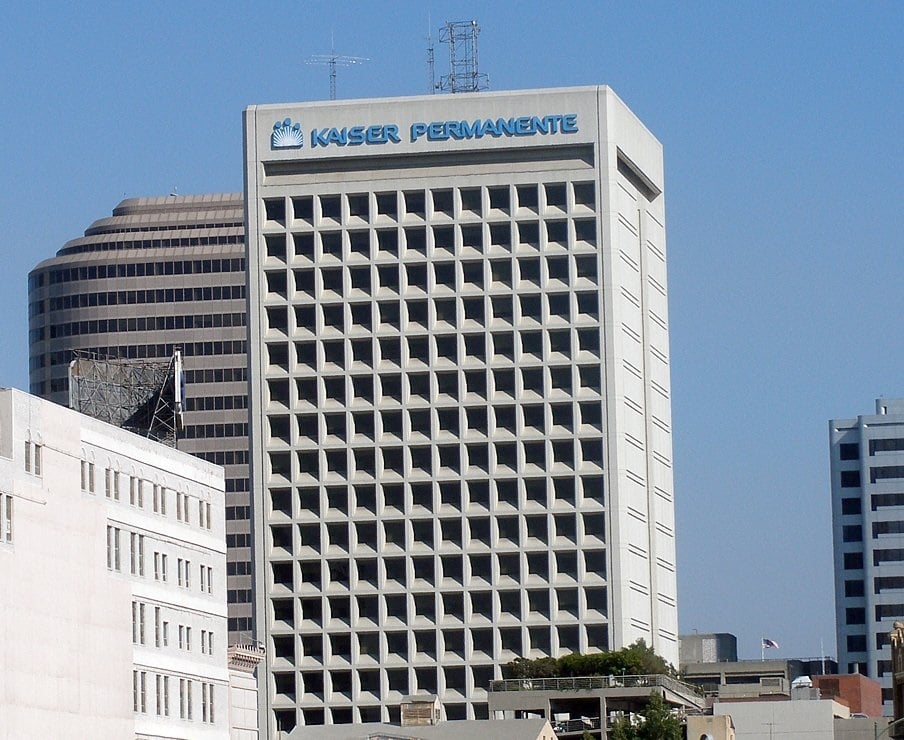SACRAMENTO, Calif. (CN) — Kaiser Permanente and the National Union of Healthcare Workers announced a tentative agreement Tuesday to end a Northern California mental health workers strike that stretched on for 10 weeks.
In a joint statement, Kaiser and the union said the agreement was reached early Tuesday morning.
“The new four-year agreement will benefit Kaiser Permanente patients and drive collaborative efforts aimed at improving access to mental health care, while at the same time recognizing and better supporting mental health therapists in their important work,” the statement said.
The state’s largest health care provider, Kaiser has been investigated for its health practices and accusations of improperly staffing mental health care departments around the state — with millions of patients waiting for therapy appointments — for years.
In 2020, San Francisco-based clinicians signed a letter to Kaiser officials saying patients were waiting four to five months to start individual therapy and between six to 12 weeks between appointments. Kaiser has been fined by state regulators for denying members timely access to care, and the California Department of Managed Health Care’s head told the state Senate in September that Kaiser is legally required to maintain mental health services during the strike but instead had begun canceling appointments.
The union also said Kaiser refused to adequately replace the striking workers and had hired unqualified nurses to prioritize certain patients for care. In the interim, workers have gone without a paycheck for more than two months while protesting at clinics across California including Oakland and San Francisco, and as far as Hawaii.

Deb Catsavas, Kaiser’s senior vice president of human resources, has said the strike is part of “harmful tactics” by the union affecting negotiations. The sides frequently rejected each other’s offers, including an offer from Kaiser in late September which the union said did not address understaffing and inadequate access to care for 4.6 million Kaiser members. The union said Kaiser had offered wage increases but did not act on proposals by clinicians aimed at providing therapists more time to see returning patients.
“We presented Kaiser officials detailed proposals to increase staffing and improve access to care in the first negotiating session 14 months ago, and we won’t accept a contract that ignores those issues,” said Ilana Marcucci-Morris, a Kaiser therapist in Oakland.
The San Francisco Board of Supervisors held a hearing Sept. 27 to investigate the health provider’s practices around behavioral health care, interviewing Kaiser therapists, patients and city health officials. And union president Sal Rosselli said in a Oct. 3 statement that he hoped Governor Gavin Newsom and the state would take action. Political support for the union strike grew from lawmakers like State Controller Betty Yee, state Senate President Toni Atkins and Assembly Speaker Anthony Rendon.
“In a time of unprecedented need, California should take a zero-tolerance policy when it comes to giant corporations who profit while denying patients the care they are entitled to under the law,” Rosselli said in a statement.
Nearly 2,000 Kaiser therapists will participate in a two-day ratification vote and more details about the new agreement will be available afterward. Kaiser and the union credited Sacramento Mayor Darrell Steinberg for help bringing negotiations to a close.
"The resolution of the Kaiser-NUHW strike is a hopeful moment for both Kaiser & its dedicated mental health professionals," Steinberg said in a statement. "The settlement is fair and provides hope and direction for improving not only Kaiser’s mental health system but that of California & the nation. The brain is as important as every other major organ in the body. It was an honor to help bring the parties together so that they can move forward together."
Subscribe to Closing Arguments
Sign up for new weekly newsletter Closing Arguments to get the latest about ongoing trials, major litigation and hot cases and rulings in courthouses around the U.S. and the world.









